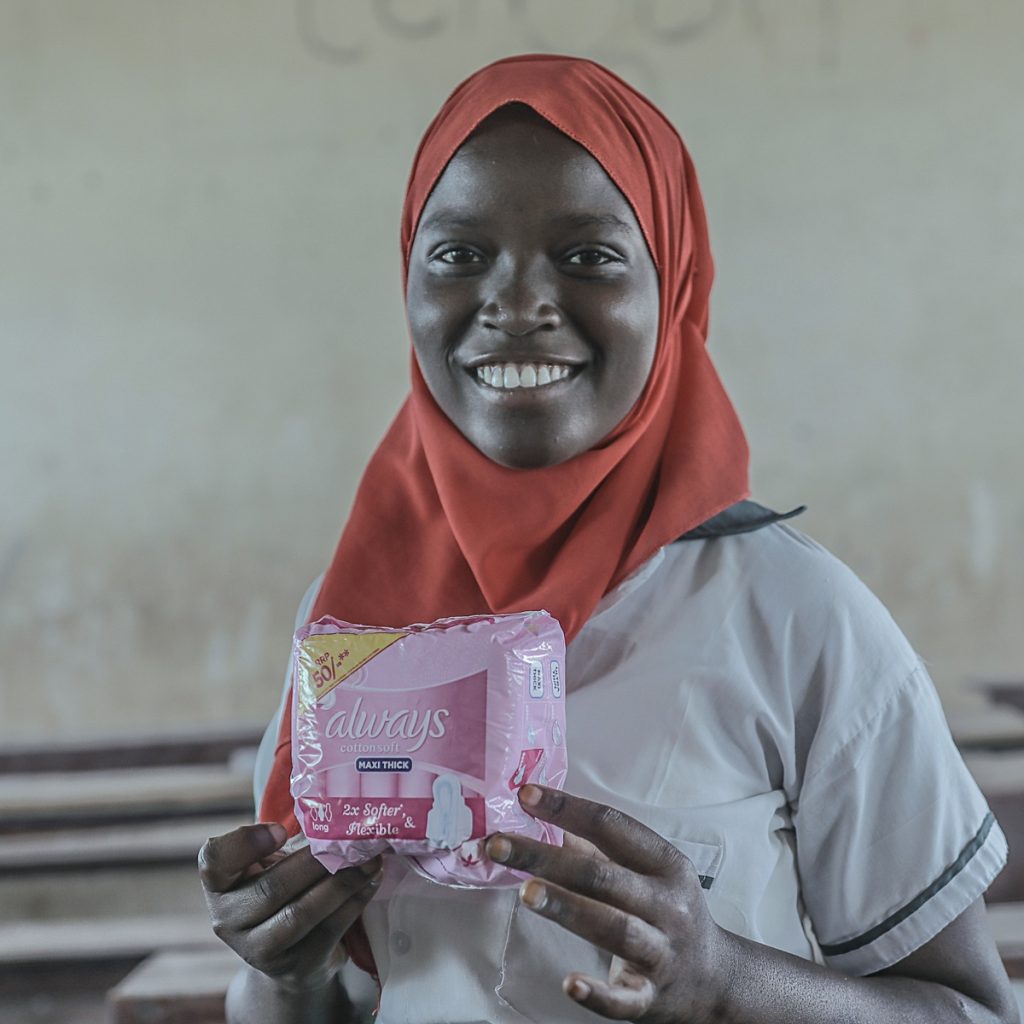
Amina, a determined student, found herself facing monthly challenges that went beyond the typical rigors of academia. Stains in her clothing, discomfort, and the daunting prospect of missing classes during her periods were a shared struggle among many girls in her school.
In 2023 the girls of Marsabit Secondary School collectively embarked on a transformative journey towards empowerment. The catalyst for this change was the Out-of-School Children (OOSC) project, a collaborative effort between UNICEF and FCA Kenya. This initiative aimed to address the multifaceted challenges hindering girls from accessing education, with a particular focus on Menstrual Hygiene Management (MHM).
As the OOSC project unfolded, MHM kits, containing essential sanitary pads and guidance on their proper usage, became a beacon of hope for Amina and her peers. Amina vividly recalls the day she received her kit—a small bag that held more than just hygiene supplies. Unbeknownst to her, this seemingly modest kit would mark the beginning of a positive change in her educational journey.
With the MHM kit in hand, Amina found herself liberated from the worry of stains and discomfort during classes. “It boosted my self-esteem and allowed me to focus on my studies,” she shares, a grateful smile accompanying her words. Amina’s newfound confidence radiated, inspiring her peers to shift conversations about menstrual struggles into empowering dialogues.
Mr. Malicha Dub, the Head Teacher, expressed his gratitude, acknowledging the stark reality that existed before the intervention. “Many girls would miss classes during their periods due to a lack of proper hygiene materials. It affected their academic performance and confidence.” The MHM kits, a simple yet profound solution, include not only sanitary pads but also comprehensive training on proper usage and disposal, ensuring that no girl compromises her education due to a natural biological process.
Data from UNICEF Kenya shows that one in every ten girls miss four days of school a month due to inability to access feminine hygiene products.
The school counsellor, Madam Jillo Waqo, emphasised the psychological impact of the initiative, noting, “girls were more comfortable and confident attending classes regularly. It created a positive atmosphere where they felt supported and understood, contributing to their emotional well-being.” The project’s comprehensive approach extended beyond addressing physical needs; it also recognised and nurtured the mental and emotional well-being of the girls, fostering a conducive learning environment.
Sabdio Ali, a Form 4 student, eloquently shared her gratitude. “Receiving the MHM kit made a huge difference in my life. I no longer had to worry about stains or discomfort during classes. It boosted my self-esteem and allowed me to focus on my studies.” Their stories echoed throughout the school, creating a ripple effect that promotes autonomy and self-determination.
As the academic year progressed, the positive impact of the MHM kits manifested in the girls’ academic performance. Mr. Dub proudly announced, “The end-year exam results were a testament to the success of the OOSC project. The girls who received the MHM kits showed a remarkable improvement in their grades, proving that with the right support, every girl can excel academically.”
Duncan Wambua, FCA Monitoring and Evaluation officer said, “it’s truly heartwarming to witness the tangible impact of our MHM kit distribution. FCA is committed to fostering an environment where every girl can access education without compromise. A small kit can make a big difference,” he concluded.